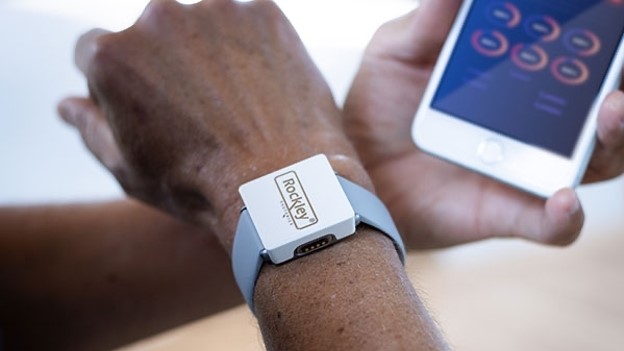Never mind blood glucose, the Apple Watch 8 might not even track skin temperature
We've got big hopes for the Apple Watch 8, but now it sounds as thought this year's watch isn't likely to pack in lots of new sensors – if any. If true, that'll be a big disappointment to those hoping that the next-gen Apple Watch would be able to track blood pressure, blood glucose, and perhaps even blood alcohol levels.
In his latest PowerOn subscriber newsletter, Bloomberg's resident Apple expert Mark Gurman gives his predictions for the year ahead, sprinkled with some titbits of insider info – and it's disappointing reading for anyone anticipating a big overhaul of the Apple Watch for 2022.
In fact, Gurman suggests that the new watch may not even be able to track skin temperature, which is something devices from Fitbit, Garmin, Oura and many others have been doing for years.
"Body temperature was on this year’s roadmap, but chatter about it has slowed down recently," Gurman writes. "Blood pressure is at least two to three years away, while I wouldn’t be surprised if glucose monitoring doesn’t land until later in the second half of the decade."
A sense of things to come
Apple itself hasn't suggested that any of these features are in the pipeline. Instead, the theories have arisen from a combination of registered patents, surveys sent to Apple Watch users, and news from companies that supply Apple with components.
For example, last year Rockley Photonics, one of Apple's suppliers, revealed that it had developed a 'clinic on the wrist' that could track metrics including core body temperature, blood pressure, hydration, and blood alcohol and glucose non-invasively.

The hardware and software looks promising, and Rockley has consumer wearables in mind, but the device is still undergoing clinical testing, and its reliance on cloud computing to process the harvested data could present a challenge for Apple when it comes to privacy.
It was widely anticipated that last year's Apple Watch 7 would be a big upgrade on its predecessor, but when it arrived the changes were much more modest; the two key changes were a slightly larger screen and a tougher lens to protect it. Perhaps we should keep our expectations for this year's watch modest, too.
A rugged Apple Watch for tough sports wouldn't be a game-changer when it comes to biometrics, but may be a more realistic thing to hope for.
Analysis: tempering expectations
So why might biometrics have been pushed to the back burner? We know that suitably sized skin temperature sensors exist, but Apple may have chosen to avoid them until it can put that data into a context that's useful for its average user. Skin temperature alone as a number doesn't mean much, and it can be affected by so many factors, the company may have decided it needs to spend more time working out how to analyze and present it.
An absence of of blood pressure and glucose monitoring would be less of a surprise. While many recent watches (such as the Samsung Galaxy Watch 4) can estimate blood pressure using data gathered by their optical heart rate sensor, it's not as straightforward as it sounds, and requires regular calibration with a standard blood pressure cuff to be useful.
These smartwatches aren't medical devices either, so they can't replace conventional blood pressure checks for people managing hypertension.
Non-invasive blood glucose and alcohol monitoring is even further off. Biometrics company Abbott produces wearable patches for people with diabetes that track changes in glucose in the interstitial fluid between cells, and sync this data with a mobile app. It's much more convenient than a finger-prick blood tests and allows for continuous monitoring, but the sensor is on a probe that sits just underneath the skin; not something that'd be practical for desirable for a smartwatch.
Abbott also produces a non-medical glucose sensor to help athletes optimize their fuelling strategies during events, and at CES 2022 it unveiled plans for a series of stick-on patches that will allow people to track factors including ketones, lactate, and blood alcohol. However, again these rely on a subdermal probe – and even if they didn't, the data they gather might not have the universal appeal to make it into an Apple Watch.
- We've tested and ranked the best fitness trackers
from TechRadar - All the latest technology news https://ift.tt/3r6LqsW

Comments
Post a Comment